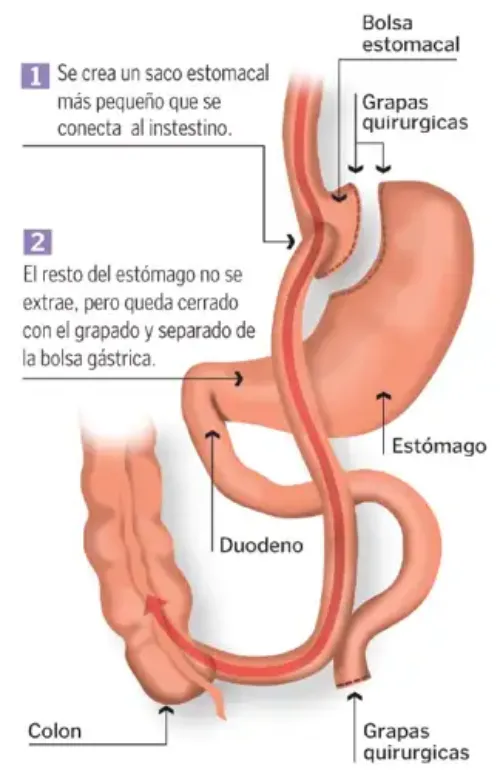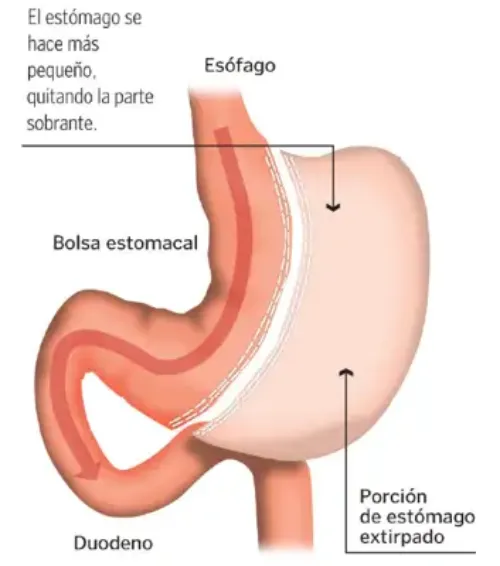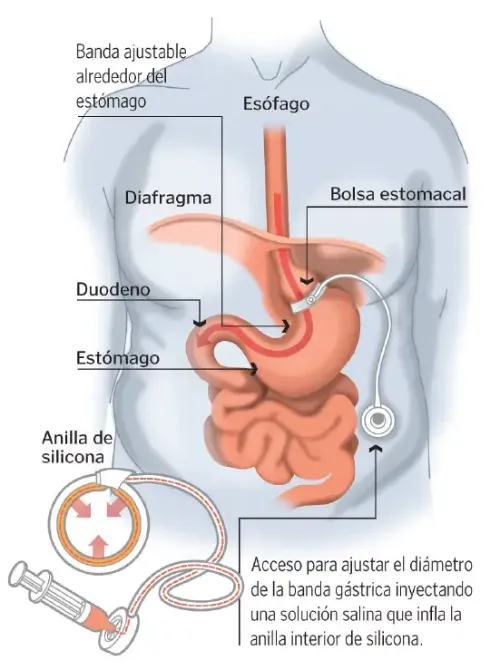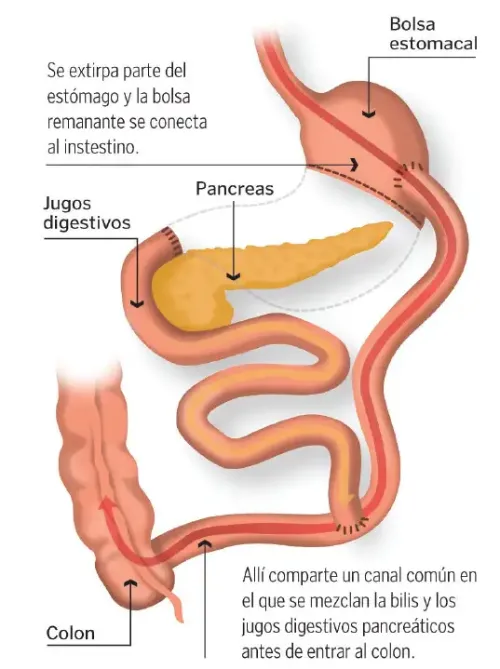Bariatric surgery
"Patients who undergo surgery experience a very high degree of satisfaction for the health benefits and for the great improvement in their quality of life".
DR. VÍCTOR VALENTÍ CODIRECTOR. AREA OF OBESITY

Obesity surgery
The Clinica Universidad de Navarra is a center of excellence in obesity surgery, certified by the International Federation for Bariatric Surgery (IFSO), the most prestigious institution in the world in this area.
Likewise, the Clinic has been accredited as a leading center of excellence in the treatment of obesity at the European level, by the European Society for the Study of Obesity (EASO)
We have an Obesity Area, specialized in this pathology, with the most advanced technology both for performing diagnostic tests in a very short period of time as well as for performing bariatric surgery.
Our surgeons and anesthesiologists have more than 20 years of experience in handling the different surgical, laparoscopic and anesthetic techniques specialized in bariatric surgery.

International Center of Excellence in Obesity Surgery
Accredited by the International Federation for Bariatric Surgery (IFSO)
Experience
More than 20 years of experience in the treatment of obesity surgery.
Expert professionals
Trained in these techniques in international reference centers in the USA and Europe.
Speed
In 48 hours our specialists will evaluate your case and propose the best treatment.
Security
Bariatric surgery is safe and fast. In our center, the complication rate is very low.
Fast recovery
After surgery, the patient returns to his or her life within 24-48 hours.
Personalized program
Pre and post surgery counseling, nutrition, exercise and personalized follow-up.
When is bariatric surgery indicated?
Morbid obesity is a disease that ends up directly affecting the quality of life.
A diet and physical activity plan is not enough to achieve the desired changes.
Surgery will facilitate the change of habits necessary for the patient:
- It will improve their quality of life.
- Health problems associated with this disease will decrease: myocardial infarction, arterial hypertension, cancer (endometrium, breast, colon...), arthrosis, varicose veins, type 2 diabetes, etc.
- You will acquire better eating and lifestyle habits.
Most frequent indications for obesity surgery:
- Obesity (BMI > 35) with associated diseases.
- Morbid obesity (BMI > 40).
Do you have an obesity problem?
Surgical treatment of your obesity may be necessary
How is bariatric surgery performed?
Types of surgery for obesity
There are several surgical techniques that can be performed today, and there is no single "ideal" technique for losing weight.
The choice of one or another type of surgery depends on the clinical characteristics of the patient, possible associated diseases that present as well as their eating behavior and psychological profile.
Ultimately, it will be the specialized surgeon who, together with the specialist in Endocrinology and Nutrition, will establish the precise indication by evaluating the effectiveness, advantages and disadvantages of the different techniques.
The surgery is performed by laparoscopy, with very small incisions in the abdomen through which the surgical instruments are introduced. In this way, the surgery is minimally invasive for the patient and the subsequent recovery is very fast.
Laparoscopic gastric bypass
By means of this technique the stomach is sectioned to make it smaller and the intestine is sutured. In this way, the amount of food ingested is less and its absorption is limited to the desired stretch of intestine.
The patients present early sacity and less attraction to food.
This surgery is recommended for patients with BMI over 40, or 35 with other associated interventions.
After the intervention, the average weight loss is usually around 30% of the total weight and 70% of the excess weight.

Laparoscopic sleeve gastrectomy
By means of this intervention, the stomach is seized with mechanical staplers until it adopts a long and narrow tubular shape, extracting the rest of the stomach from the organism. In this way, the path followed by the food is the same as before the surgery.
This operation is indicated in those patients in whom the risks of a long operation are very high, in those in whom the BMI is very high or in those in whom it is not desired to associate a lower absorption of the food with the restriction.

Other surgical techniques for obesity
Adjustable gastric banding
It is an inflatable band that is placed around the upper portion of the stomach, in order to create a small reservoir to limit the amount of food and the speed with which it passes through the stomach.
This band is connected to a small subcutaneous device with which the greater or lesser restriction for the passage of food is controlled.

Biliopancreatic diversion and duodenal switch
This technique, in addition to reducing the size of the stomach, also reduces the capacity of the intestine to absorb food. In this intervention, the main effect is produced by the decrease in food absorption.

Revisional surgery
In some cases, patients who have already undergone surgery for obesity, over the years, experience weight regain.
These cases are residual when the patient has been correctly evaluated and the type of operation appropriate to his or her particular case has been performed. Furthermore, if the patient follows the recommendations indicated at discharge, the cases are even smaller. When they occur, a review is made of the surgery performed and a solution is proposed that will improve the results obtained.
There may also be cases in which a previous endoscopic treatment for the management of obesity has failed and a more definitive and lasting solution is sought that allows better long-term results.
The revision surgery must be carried out in centers with experience in the diverse surgical techniques available and multidisciplinary handling of obesity.
Preparation before bariatric surgery
Before the intervention it is convenient to follow the recommendations that your team of professionals will provide you with in order to achieve greater success in the surgery and a better recovery.
- Personalized diet plan by our nutritionists to achieve a reduction in the size of the liver and visceral fat.
- Exercise program adapted to each patient to improve cardiovascular capacity and reduce the risk of complications after surgery.
- If you are a smoker, you must stop smoking.
- Other care about medication, infection prevention, etc.
Postoperative care
The first month after surgery, the patient will continue with recovery, following the instructions received from the Clinic's medical team upon discharge: personalized instructions on nutrition, medication, breathing exercises and the indication to walk regularly.
During this first month, you will have to follow a liquid and soft diet until you gradually achieve a complete diet. Weight loss during the first month will be important, becoming more gradual over time.
Our nursing team, both during hospitalization and in consultation, will help you and explain everything you need to know.
The Obesity Area
of the Clínica Universidad de Navarra
Our Obesity Area is formed by a team of professionals from different specialties. In less than 48 hours we perform the complete evaluation of a patient by all specialists according to our obesity protocol.
The Clinic is a center of excellence accredited in the treatment and surgery of obesity by the European Society for the Study of Obesity and by the International Federation for Bariatric Surgery.
What diseases do we treat?
- Metabolic syndrome
- Overweight
- Obesity
- Morbidly obese
- Childhood obesity
What treatments do we perform?
- Medical plan and personalized nutritional follow-up
- Intragastric balloon
- Bariatric surgery
- Endoscopic techniques
- Metabolic surgery
- Revision surgery

Why at the Clinica?
- More than 20 years of experience in the treatment of obesity surgery.
- Trained in these techniques in international reference centers in the USA and Europe.
- In 48 hours our specialists will evaluate your case and propose the best treatment.

















